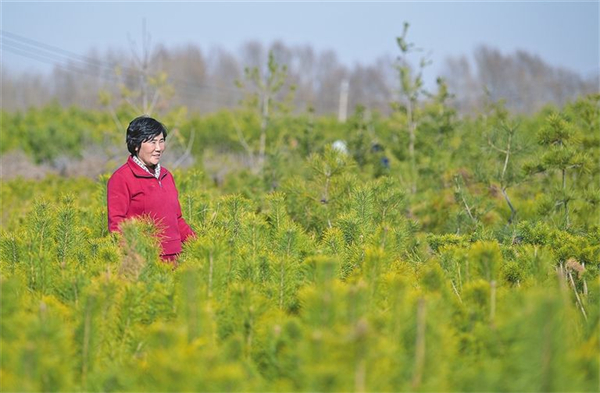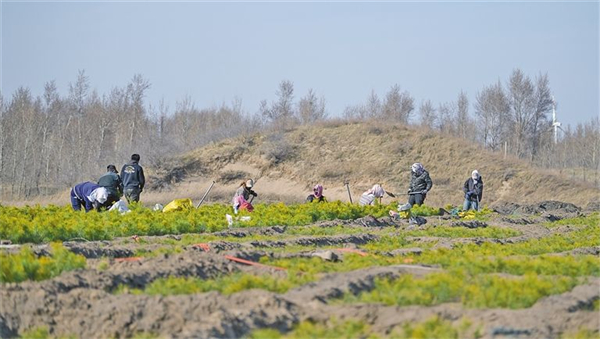Inner Mongolia nursery base brings economic and ecological benefits

Li Xiuhui stands in her nursery base, with green covering the sandyland. [Photo/North News]
In the heart of spring, Jiahui Nursery Base in Ganqika town, Tongliao city, bursts with vitality. Rows of lush pine and spruce saplings sway gently in the breeze as nursery founder Li Xiuhui and her workers tirelessly labor to plant new trees.
Fifteen years ago, this land was barren. Today, it stands as a flourishing green oasis. "When I first started, there was nothing but sand. Even building a simple house took more than two months because of the relentless wind," recalls 62-year-old Li, who established the nursery in 2010.
Since then, she has cultivated over 960,000 trees across 16,000 mu (1,067 hectares), transforming desolate land into thriving forest and carving out a path of sustainable growth.

Residents work in Li's nursery base. [Photo/North News]
Beyond ecological restoration, the nursery has brought real economic benefits to the local community. "Whenever there's work, Li calls us. A month's work here earns me over 4,000 yuan ($547)," says resident Sang Yanhua. "It helps ease my children's financial burden and improves my quality of life," Sang added.
Over the past 15 years, the nursery has created 1,800 job opportunities, making these saplings "money trees" for nearby villagers.
"As long as I'm able, I'll keep going – to leave more green for future generations," Li says with quiet determination. She envisions expanding her base into a multifunctional nursery complex that integrates trees, flowers, and traditional Mongolian-Chinese medicinal plants.

Li guides workers on how to plant trees. [Photo/North News]



 Print
Print Mail
Mail





